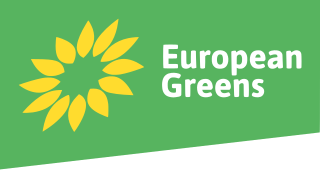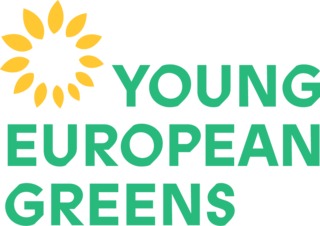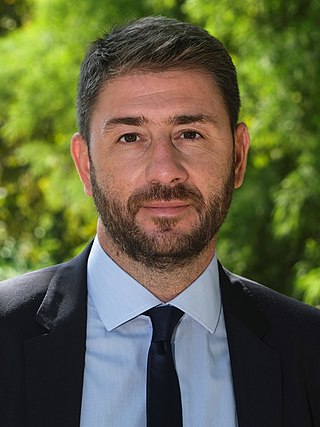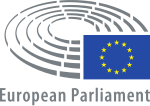
The Nordic Council is the official body for formal inter-parliamentary Nordic cooperation among the Nordic countries. Formed in 1952, it has 87 representatives from Denmark, Finland, Iceland, Norway, and Sweden as well as from the autonomous areas of the Faroe Islands, Greenland, and Åland. The representatives are members of parliament in their respective countries or areas and are elected by those parliaments. The Council holds ordinary sessions each year in October/November and usually one extra session per year with a specific theme. The council's official languages are Danish, Finnish, Icelandic, Norwegian, and Swedish, though it uses only the mutually intelligible Scandinavian languages—Danish, Norwegian, and Swedish—as its working languages. These three comprise the first language of around 80% of the region's population and are learned as a second or foreign language by the remaining 20%.

Youth For Understanding (YFU) is an international educational exchange organization. A network of over 50 independent national organizations worldwide, YFU representatives work together to advance learning across cultures.

The European Green Party (EGP), also referred to as European Greens, is the European political party that represents national parties from across Europe who share Green values.
The International Commission for Optics (ICO) was created in 1947 with the objective to contribute, on an international basis, to the progress and dissemination of the science of optics and photonics and their applications. It emphasises the unity of the crossdisciplinary field of optics.

The Model European Parliament (MEP) is an international simulation of the working of the European Parliament for students aged 16–19. The aim of the programme is to give young people an insight into the workings of the European Parliament and raise their awareness of European citizenship. Two sessions are held each year, each involving 180 secondary school students.

The Dublin Regulation is a Regulation of the European Union that determines which EU member state is responsible for the examination of an application for asylum, submitted by persons seeking international protection under the Geneva Convention and the Qualification Directive, within the European Union.

Young European Federalists is a political youth organisation. Active in most European countries, it seeks to promote European integration through the strengthening and democratisation of the European Union (EU). JEF has close ties to the European Movement and the Union of European Federalists and is a full member of the European Youth Forum (YFJ).

Especially For Youth is a week-long youth-oriented seminar focused on fellowship and teaching the principles of the Church of Jesus Christ of Latter-day Saints. It is run by Brigham Young University's (BYU) Division of Continuing Education (CE) and is the largest church-oriented summer camp, attracting over 50,000 attendees every year at locations around the world.

The NATO Parliamentary Assembly serves as the consultative interparliamentary organisation for the North Atlantic Treaty Organization. Its current President is Michał Szczerba from Poland, elected in 2023. Its current Secretary General is Ruxandra Popa, who has been in this position since January 2020.

The Federation of Young European Greens, often referred to as FYEG, is an umbrella organisation that gathers young green movements and organisations across Europe with 40,000 members. FYEG's aim is to defend climate and social justice on the European level. Since 2007, FYEG is the European Green Party's youth wing.

The Baltic Assembly (BA) is a regional organisation that promotes intergovernmental cooperation between Estonia, Latvia, and Lithuania. It attempts to find a common position in relation to many international issues, including economic, political and cultural issues. The decisions of the assembly are advisory.
Jeunesses Musicales International (JMI) is the largest non-governmental youth music organisation in the world, created in Brussels, Belgium in 1945, with the mission to "enable young people to develop through music across all boundaries". JMI has established four priority activity fields: Young Musicians, Young Audiences, Youth Empowerment and Youth Orchestras & Ensembles.
The Permanent European Conference for the Study of the Rural Landscape (PECSRL) is an international network of landscape researchers whose interest focus on the past, present and future of European landscapes, and serves as an international platform for new initiatives, meetings and publications about European rural landscapes. It meets every two years in a different European country for lectures, discussions, working groups and landscape excursions. It has several working groups that focus on actual problems in European landscape management and landscape research. The unifying concept of PECSRL is the past, present and future of European landscapes, relating to landscape research as well as landscape policy and landscape management.

The Electrical Engineering STudents' European assoCiation (EESTEC) is a nonprofit apolitical and non-governmental student organization for Electrical Engineering and Computer Science (EECS) students at universities, institutes and schools of technology in Europe awarding an engineering degree. As of March 2020, there were 48 current locations in EESTEC from 24 countries, although several other locations were active in EESTEC over the years.
The European Commission of the Nobility is an organisation for cooperation of associations of European nobility, established in 1959. Its seat is in Paris, France.

Young Friends of the Earth Europe (YFoEE) is a grassroots network of young people and youth organisations working together on social and environmental justice issues. It works collectively on the local, national and European level, to inspire young people, organise actions and events and get attention in the media, in politics and among the general public on issues important to young people.

European Youth Parliament Ukraine – is a politically unbound non-profit organisation, which encourages Ukrainian youth to actively engage in citizenship and cultural understanding. It is not connected to any religion. The EYP Ukraine represents one of the 40 National Committees of EYP. It was found in Ukraine in 2000.

Nikos Androulakis is a Greek politician who serves as president of the PASOK – Movement for Change since 2021. He served also as Member of the European Parliament from 2014 to 2023.
European Youth Parliament Ireland(Gaeilge: Parlaimint na hEorpa Óige na hÉireann) is a politically unaffiliated, nonprofit organization that encourages Irish youth to be actively engaged in political discourse. It operates across the Republic of Ireland, with Northern Ireland being under the responsibility of EYP UK. EYP Ireland represents one of the 40 National Committees of EYP International.

European Youth Parliament – Armenia is the Armenian branch of the European Youth Parliament (EYP). EYP Armenia was founded in 2012 as a nonprofit organization and is headquartered in Yerevan. EYP Armenia represents a non‐partisan and independent educational project which is tailored entirely to the needs of young leaders.
















